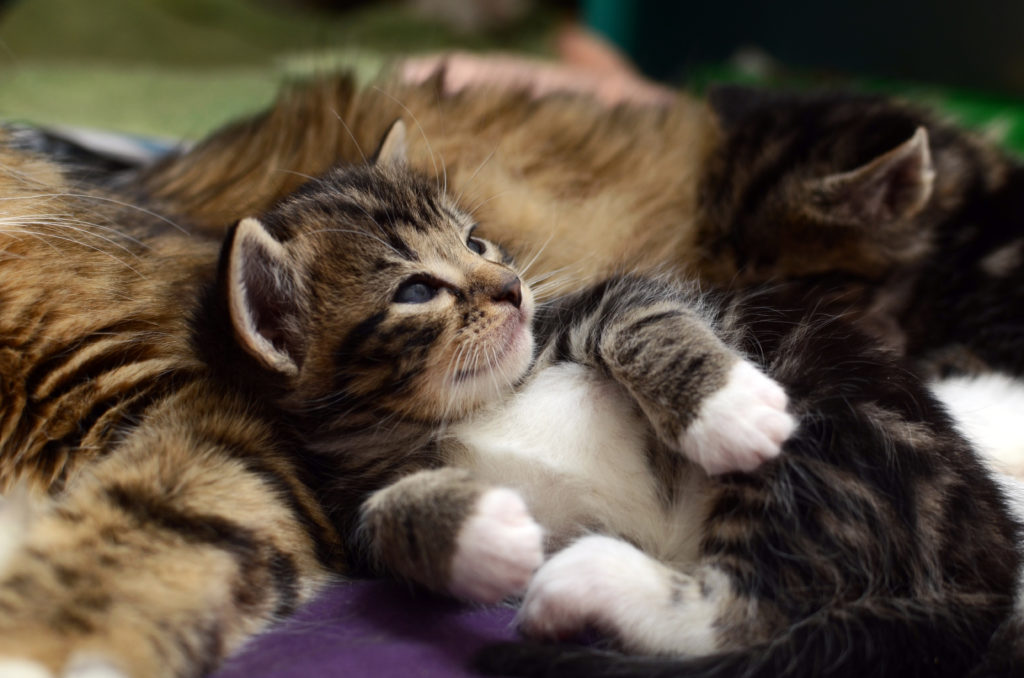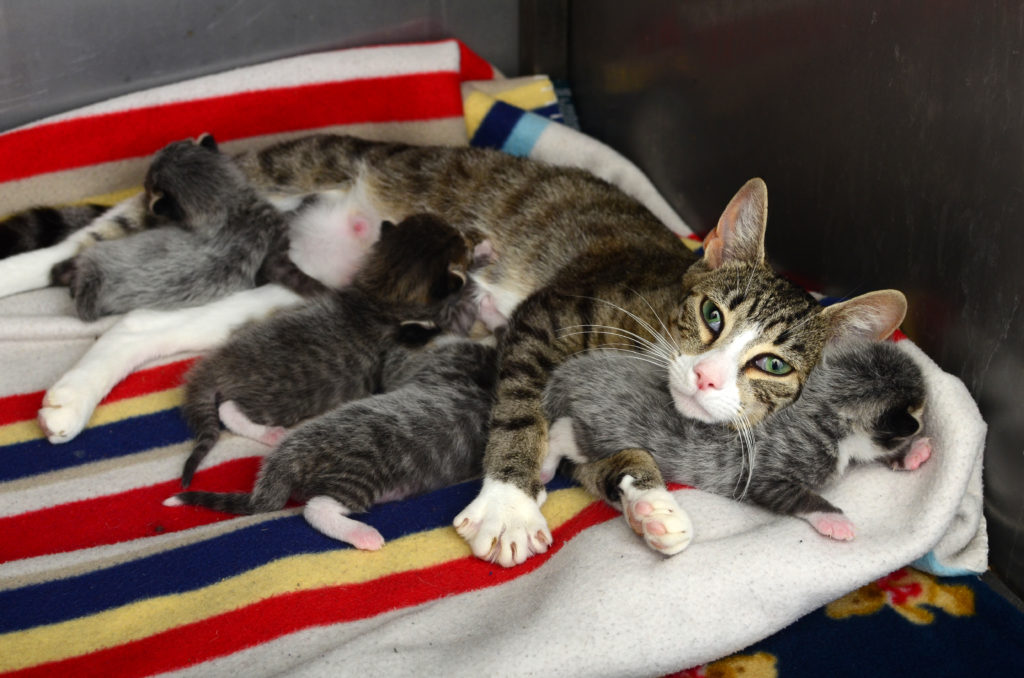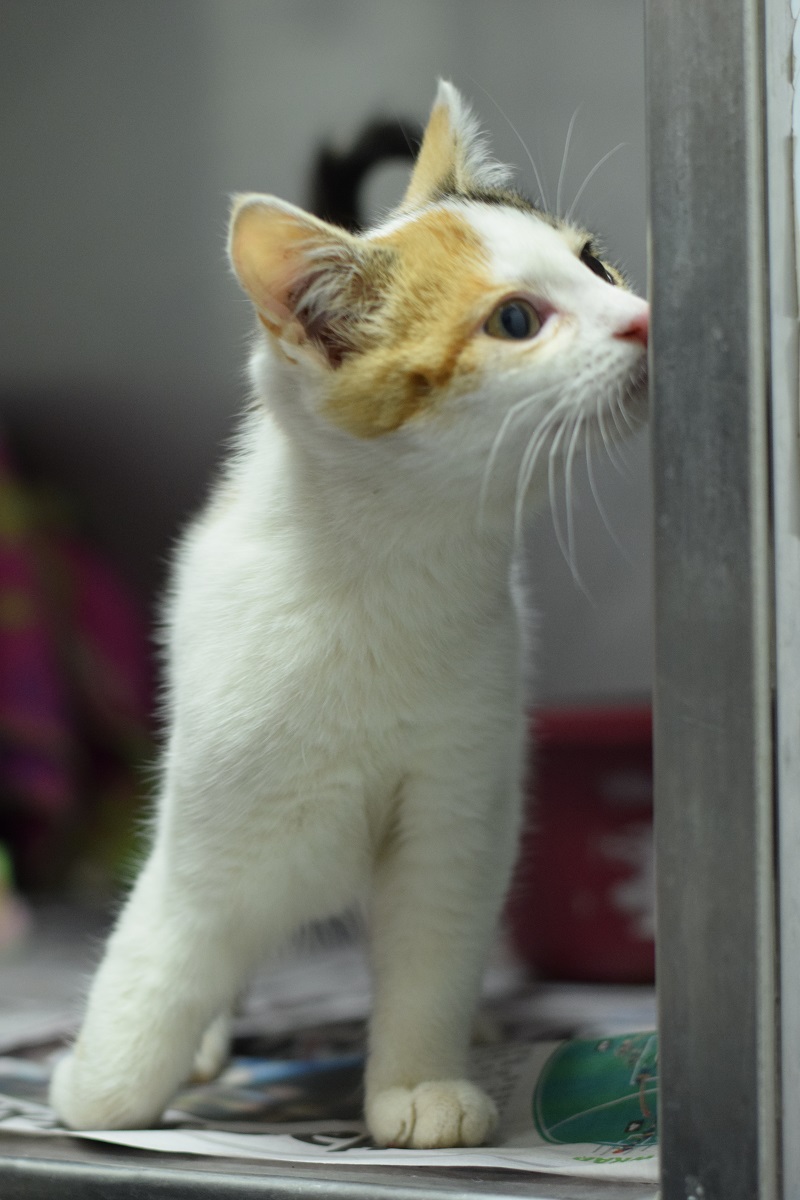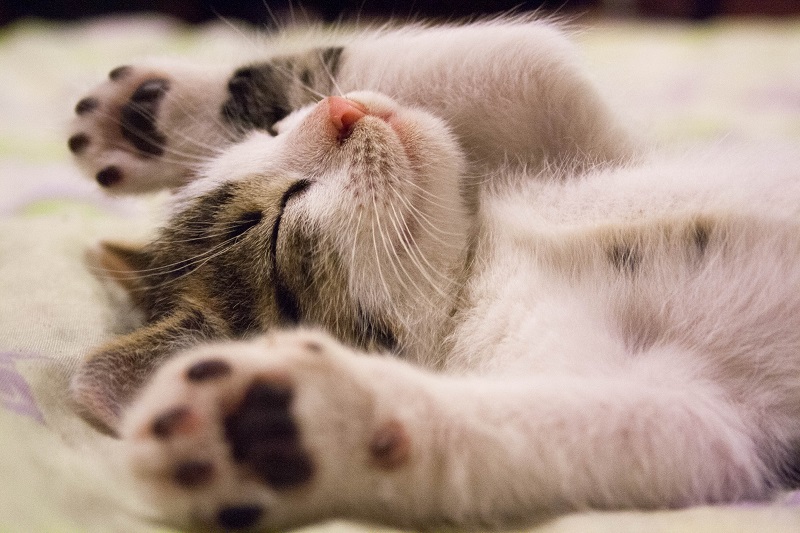The complete guide to raising a kitten: Part 5 – 5 fur-nomenal facts about kitty behaviour
September 02, 2019Ever wondered why your cat gets a case of the zoomies after they’ve done their business? Or why they knead with their little paws into your lap?
Felines are much more fascinating creatures than we even realise – even if they’re a pain to live with at times!
We’ve touched based with our Cat Care Specialists at RSPCA South Australia to find out the explanations behind some of cats’ weirdest but most endearing behaviours.
1. Zoomies after using the litter tray
A common one in kittens, there are many possible explanations for why your puss often darts around the room or races up a hallway right after finishing a number two.
It could be your cat celebrating that they no longer need their mother to clean them afterwards – yes, seriously.
Or, they may be replicating post-poop vulnerability in the wild by going into survival mode and moving swiftly away from a smelly source that predators may detect (or they might even hate the smell themselves and want to get away from it).
Our favourite explanation is that cats simply feel such contentment post-bathroom that they can’t help but zoom around the room in a joy-filled flurry. I mean, we may not feel the need to express our joy in such an extravagant manner, but there’s no denying the satisfaction of it… right?
Top tip: if your cat’s zoomies are getting out of hand and starting to keep you up at night, head to our post about how to deal with behavioural problems.

2. Kneading
One of our favourite things about kitties is the way they knead our laps with such affection, such joy… whatever the motivating factor, we take comfort in the fact that a kneady cat is a happy cat!
As territorial creatures, cats like to knead to mark their territory, just to make sure you know what’s theirs. (Hey, we’ll take it over spraying on our lap.)
There’s also a theory that kittens knead to stimulate milk from their mother and simply continue this behaviour into adulthood to create a sense of security. In other words, cats take comfort in replicating their childhood – aww.
Kitties also knead to calm themselves down when they’re feeling anxious, but sometimes they do it simply to show that they’re happy, and that’s good enough for us!
Top tip: if your cat kneads with their claws out, either train them to knead off your lap by gently removing them whenever they start. Or, only allow them on your lap once you’re covered with a blanket.

3. Rubbing their faces against… everything
In addition to kneading, cats take much delight in rubbing their faces against us, and pretty much everything else they can.
And yep, you probably guessed it – this is yet another way for kitties to mark their territory. In the wild, rubbing against objects was actually a way for cats to mate and to communicate to others what was theirs (a survival tactic, if you will).
This is because cats have facial pheromones, AKA scent glands in their face that release chemicals that provide them reassurance in their environment.
So for them, rubbing their faces against you, or an object, is a way of making you smell a way that makes them feel safe or familiar.
It’s also a way for our (secretly) sensitive feline friends to show their affection and love for us. For cats, rubbing their faces against us is a form of bonding, and we think that’s pretty special.
Top tip: remember – every time your cat rubs their face on you, they’re not only telling you they love you, but they’re letting you know that you are theirs!

4. Meowing
Meow. Cats meow to say hello (naw), but they also do so to let you know that they want something. If your cat won’t stop meowing, they may want to be fed or let through a door. Or, it could just be because they want attention…
Check out this informative video our Cat Care Specialists recommend on what different cat sounds mean.
Keep in mind: in this video, the filmer is recording a stressed cat growling and hissing. If a cat shows any of these signs, we recommend not continuing the interaction and leaving them alone.
Top tip: if your kitty’s incessant meows for food or attention are getting annoying, teach them that you’ll only pay attention to them when they’re quiet by walking away until they stop meowing.
5. Excessive sleeping
Among the top sleepers in the animal kingdom, cats are infamous for sleeping excessively – typically up to 16 or 20 hours a day.
In fact, they sleep so much that by the time a cat is nine years old, they will have only been awake for three years of their life – and even less if they sleep more than 16 hours!
But – there’s an instinctual reason for all that sleeping. In the wild, cats expend huge amounts of energy hunting their prey. Without the energy for hunting, they won’t get to eat. The excessive sleeping is a way to save strength for when they catch their meals.
Of course, domesticated cats needn’t worry about ensuring energy for a hunt. But like their wild counterparts, house cats have evolved to sleep for a third of the day – even if they know their food will always be waiting for them.
Top tip: you can train cats to sleep on a similar schedule so that they’re only active when you are – head over to our post about how to deal with behavioural problems.

We hope you’re feeling a stronger bond to your kitty after learning about their mystical behaviour! Stay tuned – a bunch of super simple DIY cat toy ideas are coming your way in part 6 to this series. Don’t forget to keep us updated on your journey at Facebook or Instagram at @rspcasa and #rspcasa.





Love getting these helpful and interesting tips.
Thank you
So glad you find them useful, Marion! :)
Interesting and informative especially having a new kitten. I really am his!????
This explained quite a few things for me. Thanks very much for sharing this information with us all. Love learning more about our new family member. ❤